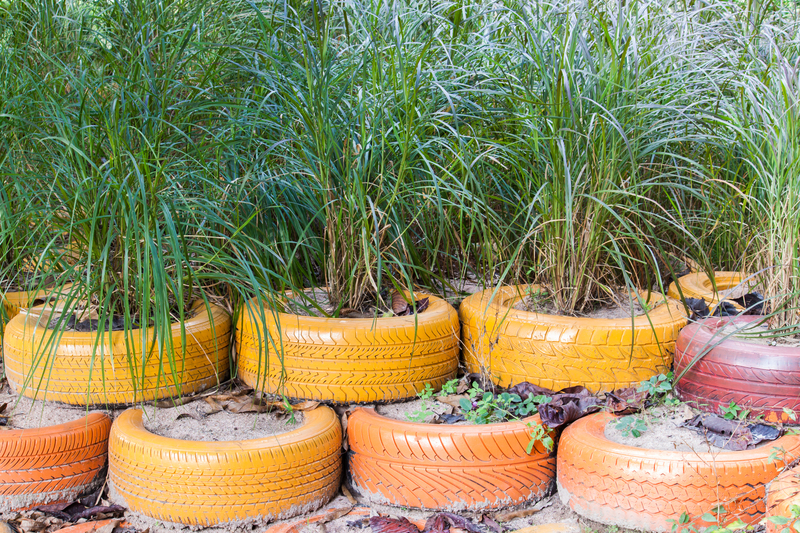Simplify Green Waste Management with These Strategies
In today's rapidly urbanizing world, effective green waste management is not just an environmental necessity but also a critical societal responsibility. By adopting strategic approaches to manage organic waste, individuals and communities can significantly contribute to sustainable living. This article delves into innovative methods to ease green waste disposal and underscores the importance of a proactive stance towards waste management.
Understanding Green Waste: A Quick Overview
Green waste refers to biodegradable organic material, predominantly originating from gardens and parks. This includes grass clippings, leaves, branches, and flower cuttings. Proper management of these materials is crucial since they can decompose, releasing methane--a potent greenhouse gas--if left unmanaged.
The Environmental Impact of Improper Green Waste Disposal
- Increased greenhouse gas emissions.
- Potential fire hazards due to accumulated dry materials.
- Leaking harmful substances into the soil, affecting plant health.
- Unsightly contributes to degraded community aesthetics.

Strategies for Successful Green Waste Management
1. Embrace Composting
Composting is one of the most effective methods to manage green waste. By composting, you convert organic materials into nutrient-rich compost that can be used to enrich soil. The benefits include:
- Reducing landfill waste.
- Decreasing use of chemical fertilizers.
- Enhancing soil water retention.
To start composting:
- Designate a compost bin or pile in your garden.
- Combine grass clippings, vegetable scraps, and leaves.
- Ensure the pile is moist but not waterlogged.
- Turn the pile regularly to oxygenate it.
Over time, you'll produce rich compost for your plants.
2. Utilize Green Waste for Mulching
Mulching is another efficient way to deal with green waste. By using shredded plant material as mulch, you can:
- Suppress weed growth significantly.
- Retain soil moisture by reducing evaporation.
- Regulate soil temperature, protecting plant roots.
Simply spread shredded leaves or grass clippings around plant bases. This natural carpet will slowly decompose, releasing nutrients into the soil.
3. Tap into Local Green Waste Recycling Programs
Many communities offer green waste recycling programs designed to handle organic material at a larger scale. These programs often have facilities to turn green waste into usable compost and mulch which is then redistributed to residents or used in municipal landscaping projects.
Participating in these programs can notably decrease the burden of managing green waste at home, while also contributing to larger-scale environmental efforts. Check with your local government or waste management agency to find a program in your area.
4. Establish a Green Waste Schedule
An organized approach to green waste management involves creating and adhering to a collection and disposal schedule. Regularly assess your yard to determine when to trim, prune, and dispose of waste. This proactive strategy prevents the accumulation of materials, making management more manageable and less time-consuming.
Benefits of Simplified Green Waste Management
Adopting these strategies benefits not just individuals but the community and environment at large. Here's how:
- Sustainability: Consistent green waste practices promote long-term environmental health.
- Cost-Efficiency: Reducing reliance on chemical products cuts costs.
- Community Well-being: Enhances local aesthetics and contributes to communal pride.
- Climate Action: Every initiative contributes to reducing the carbon footprint and mitigating climate change.

Innovative Technologies in Green Waste Management
Recent advancements in technology have introduced new tools and methods to further simplify green waste management. Some noteworthy innovations include:
Smart Composters
These devices facilitate faster decomposition by maintaining optimal conditions for microbial activity. Some smart composters even come with IoT integration, allowing users to monitor the composting process remotely through their smartphones.
High-Efficiency Shredders
Modern shredders can efficiently process thick branches and woody material, making them easier to compost or use as mulch. They reduce the volume of waste, easing the logistics of green waste management.
Automated Waste Collection Systems
Many municipalities are now using automated systems for the collection of organic waste. Automated sorting and collection save time and reduce human error in the categorization of waste, making the recycling process more efficient.
Final Thoughts on Green Waste Management
By adopting these strategies and embracing technology, we can simplify and enhance our approach to green waste management. Not only do these methods benefit individual households, but they also contribute to a healthier, more sustainable planet. Remember, every act of responsible waste management makes a difference, fostering a collective movement towards environmental stewardship.
So, implement these strategies, educate your community, and be a part of the green waste solution for a brighter, cleaner future.